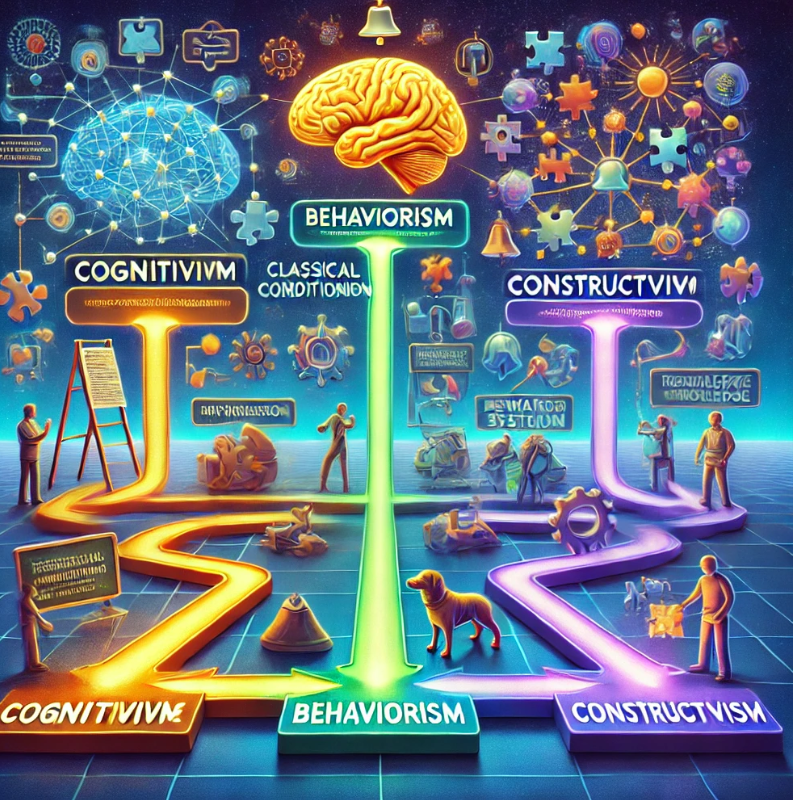Navigating Learning Challenges and Theories

Image generated by OpenAI’s DALL·E 3
Learning can be a frustrating process, especially when it feels like progress is slow. One of my most challenging experiences was mastering APA formatting during my psychology degree. Despite countless attempts, I’d often lose marks for what felt like minor details.
To overcome this, I used a mix of strategies inspired by different learning theories. At first, I approached it behaviorally—relying on repetitive practice and feedback from online tools to reinforce the rules. Over time, I shifted to a cognitivist approach, organizing the rules into templates and creating connections between concepts. Eventually, this built a deeper understanding, transforming a frustrating challenge into a manageable skill.

Image generated by OpenAI’s DALL·E 3
Reflecting on this, it’s fascinating to see how these learning theories—behaviorism, cognitivism, and constructivism—can shape teaching. Take a high school class on climate change, for example:
- Behaviorism would focus on drills and immediate feedback, ensuring students memorize key concepts like the greenhouse effect. A useful resource for this approach could be interactive quizzes, such as those on Quizlet, to reinforce learning.
- Cognitivism would encourage students to map out ideas and connect them to prior knowledge, making the content meaningful. For instance, creating mind maps is a great way to visually organize information.
- Constructivism would go a step further, having students collaborate on real-world projects, like creating a community action plan. Platforms like Google Docs allow for easy collaboration in these kinds of projects.
In my own learning, I lean toward constructivism, finding hands-on experiences most effective, whether it’s repairing devices in my business or tackling projects. But I also value starting with behavioral techniques to build foundational skills and using cognitivist strategies for solid understanding.
Learning isn’t easy, but with the right approach, it becomes less about memorization and more about growth. Check out these TEDx talks on hands-on learning and The Learning Scientists Podcast for more insights. What learning strategies have helped you overcome challenges?
Hi Dawson, reading your blog post gave me new ideas about how to approach learning. Your method of starting with practice, organizing information to understand it better, and finally using hands-on experiences made sense. It got me thinking about how to use these strategies in my own day-to-day tasks and studies, specifically in topics like health information systems. I also liked your idea of using mind maps to link ideas, and I would love to try that to make complicated information easier to understand.
Can not wait to read more of your blog post!